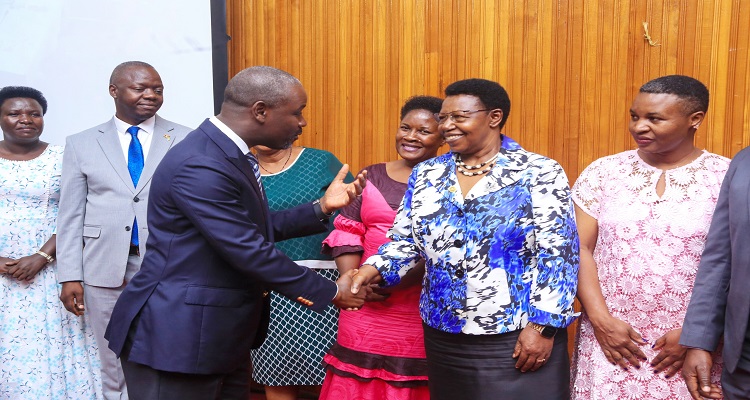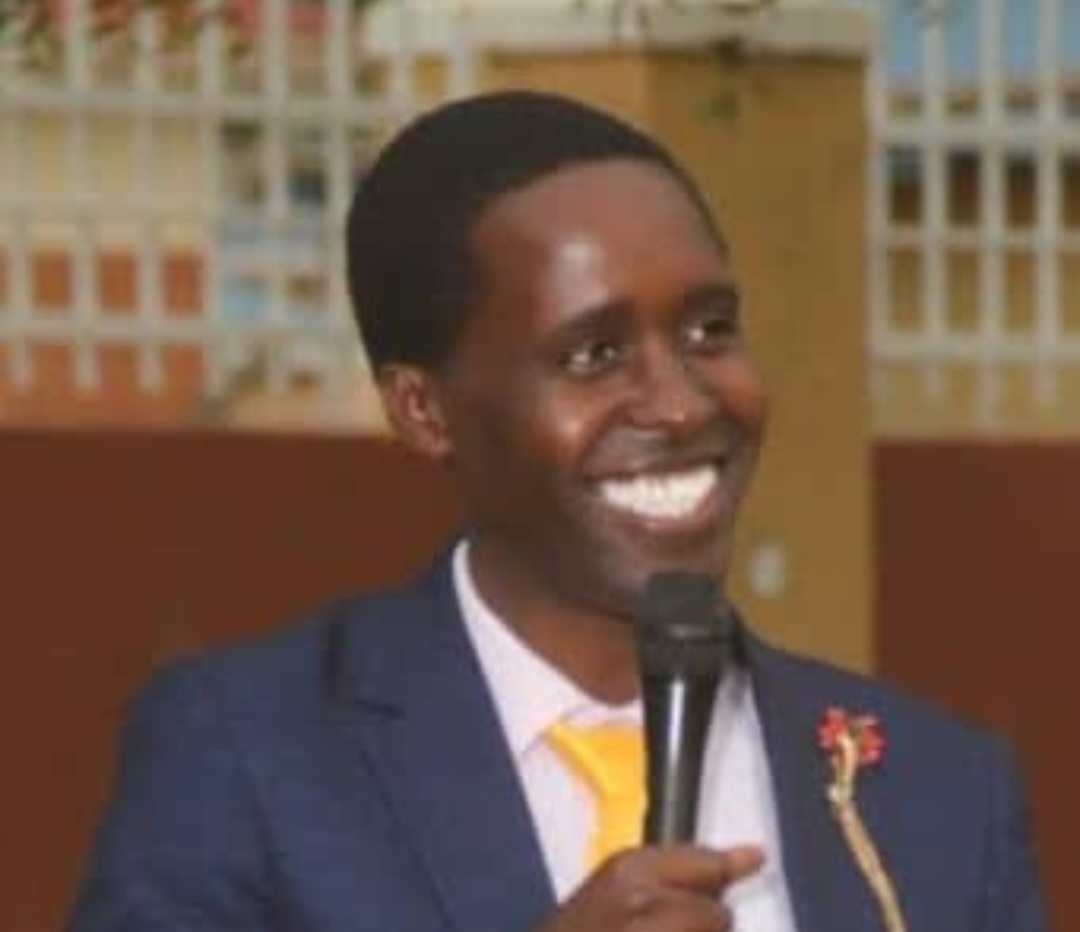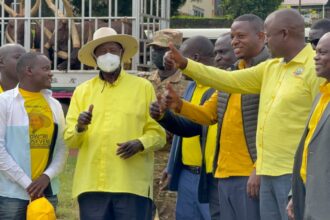About two weeks ago, I received a call from a man whose name I later learnt to be “Ibrahim Tebusweke”, based on his registration particulars with Airtel Uganda. He called me using the number: 0708 517 854. He informed me that he works with UMEME and that he was contacting me to inform me that the Yaka Meters that I had paid for (about a year or so ago) were now available. Actually, a week prior to the call, another person claiming to be a UMEME staff (whose number or name I did not record) had called to ask that we direct him to the premises where the meters were to be installed, and he, indeed, went there and checked. He called back to inform us that we would get the meters in due course. So, when I received the call from Ibrahim, I thought this was a follow-up call regarding the same meters. Ibrahim told me that I should work with another staff whose contact he read to me as: 0741 040 669. This number is registered with Airtel Uganda in the names of ‘Kiiza Job’. When I called Job, he seemed to have full information about me – my name, the number of Yaka Meters that I had paid for, and the place where my premises are located. It should be noted that UMEME usually works with field teams that fix Yaka Meters in people’s homes, and it wasn’t the first time that I was going to have Yaka Meters fixed on my premises. Also, it takes time from paying for the meters to them being installed, and whenever there are field teams installing meters on people’s premises, field officers contact customers and notify them accordingly. So, it wasn’t unusual to receive a call about the fact that there were new meters that had to be fixed, including those that we had paid for. Unfortunately, at that time, we did not realize that the people we were talking to were real fraudsters.
The story about fraudsters is not a new one; what with so many fraudsters who have been making calls to unsuspecting members of the general public threatening them that their telephone lines were going to be disconnected if they did not give them money or take certain actions – long before the national re-verification exercise came on board. What is surprising is that these people have fully registered lines, and call their unsuspecting preys with a lot of confidence. After defrauding people, their lines remain as active as before, as if nothing has happened. They are not bothered by the fact that someone can take a case to the Police. No.
Anyway, since the above-mentioned fraudsters had every detail about our Yaka Meters, I felt that these people might have inside information from UMEME itself. I actually contacted our local UMEME office to find out if there is a way that they can warn the unsuspecting public about this ongoing fraud but this wasn’t followed up to-date. This is the reason I believe that this fraud is an inside job with some staff who work with UMEME releasing such information to their “fraud networks” – in the name of making a quick kill. While someone might think that these information through hacking into UMEME’s database, I doubt that this is the case. UMEME has not reported any hack into their systems, and I see no reason why one would hack the system to obtain this kind of information. Fraudsters are so confident that they know that the general public can’t suspect them given the kind of information that they have about their preys. This is the reason why I strongly suspect that this ongoing fraud is an insider job, perfectly designed and accomplished by some inside UMEME staff, working closely with their well-knit crime networks. My humble request is for UMEME to come forward and inform people about the status of Yaka Meters. Let UMEME tell the public if there is any future plan for bringing additional Yaka Meters since we have heard that they won’t continue to supply them. Let them come clean on radios, TVs, and through social media and also advise the general public on the alternatives. Let them avail an official line that one can call to check about the status of their Yaka Meters, if there is any plan to supply more meters. I thank UMEME for taking time to warn people about people who were selling “cheap Yaka units”. They can do the same regarding the issue of Yaka Meters about which the public is being defrauded.
As we come to the end of the process of re-verifying all the telephone lines in line with the directive from Uganda Commission (UCC), is it possible for telephone companies to institute measures that can protect their customers from insider-engineered fraud? I used to think that fraudsters have many lines, including unregistered lines, that they use to defraud people. That’s what other people have said, too. But, as in the case of Ibrahim and Job above, these are registered lines. These are clear cases of fraud that we, ordinary folks, can see with our naked eyes that this type of fraud is not possible without insider support. This is the same case with those who were calling us that our lines were going to be disconnected even before the re-verification exercise was instituted. These people have all the information about their prey, including their names and how much money they have on their mobile money accounts. Until telephone companies come out to de-associate themselves from these practices, we will continue to believe that they happen with someone’s knowledge inside these companies.
My appeal to all these companies and the Uganda Police is to protect members of the general public from these fraudsters. I have named two of the men involved in defrauding UMEME customers. There are many other fraudsters out there. Can the Police, working with the telecommunication companies whose lines these people use, work to apprehend these fraudsters? In the case of the two men named above, can Airtel avail the public with full profiles of the owners of the above-mentioned lines, including their photos? Can Airtel avail the Police with their call data so that they can be tracked and apprehended? I know that some people will say that these people may have registered using fake names. But their numbers are not fake. Their numbers are fully registered with Airtel. The fraudsters continue to make calls every day, possibly to defraud other people. So, it is possible to track these men (as well as others) using call data, even if they might have used fake names. I believe that there are many people who have been defrauded out there. If we asked all those who have been defrauded to report to their nearest Police Stations with the telephone lines that the fraudsters used to defraud them, I believe there will be many people who will turn up to report such cases. Let the Police provide a safe mechanism for members of the general public to give them these numbers. I believe that if the Police works closely with the telephone companies whose lines the fraudsters used, these people will be apprehended. Let’s all shout out and deal with these thieves. Let’s publish the names, photos, and all the other information pertaining to anyone who defrauds another Ugandan. Let’s share the information via social media, print media and electronic media. When these people’s telephone lines, names, and photos are constantly published, you will be surprised to see how many people will come up to say that they were also defrauded by people who used the same telephone numbers. The starting point is for the Police and the telephone companies to use the newly acquired information as part of the re-verification exercise, to close any loose ends that still exist in dealing with this problem. Hopefully, as more fraudsters are named and exposed, this practice may come to an end.
Joseph Matovu,
Do you have a story in your community or an opinion to share with us: Email us at Submit an Article








